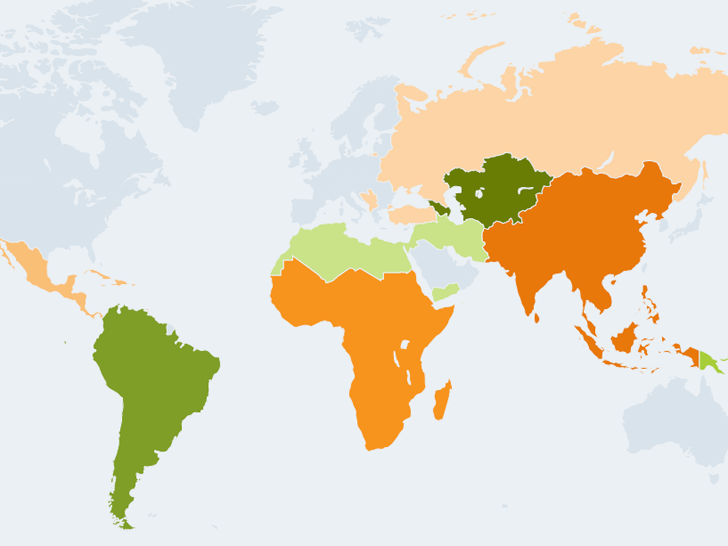OeEB utilises Technical Assistance (TA) funds to increase the additionality of its projects and implement impact-oriented TA measures. These funds can be used in combination with all financing instruments - loan financing, equity financing and the African-Austrian SME Investment Facility+ (AAIF+) - taking into account the respective project requirements.
In line with the strategic focus areas, TA measures are used for project preparation to make projects bankable and for project-accompanying activities. They are applied in all of OeEB's focus areas and can be adapted at any time to meet specific needs.
MSMEs/financial inclusion
We support MSMEs by improving access to financial services, especially for underserved market participants (e.g. women, rural populations, etc.), using financial intermediaries (banks and funds). In addition to financing, TA measures support MFI portfolio companies so that they may better respond to the needs of end customers, for example through the development of (or improved access to) financial products or better financial education. Institutional strengthening can be achieved through risk management, knowledge building and sustainable FI processes. In the area of microfinance, the focus is on ethical treatment of end customers, such as through the SPI5 analysis for microfinance institutions including client protection and MSME support via Technical Assistance Facilities (TAF).
Environmental and social management
OeEB strengthens the sustainable impact of its investments and supports project partners in managing their own environmental and social risks. Examples of this are the strengthening of environmental and social management systems (ESMS) and the implementation of environmental and social action plans (ESAPs).
Climate protection
In relation to climate change, we provide TA to financial institutions, companies and funds for the purpose of climate protection and adaptation to the changing climate. Our engagement with financial intermediaries and companies covers the following measures:
Financial institutions/funds (financial intermediaries)
- Mitigating climate change through the development of decarbonisation pathways and portfolio screening for CO2 emissions
- Identification of climate risks
- Improving the data situation or introducing reporting systems for greenhouse gas emissions
- Developing green financing products that help reduce emissions and/or increase resilience to climate change-related risks
Microfinance institutions (MFIs)
- Providing microloans to finance measures aiming to mitigate and adapt to climate change e.g. mini-grids and off-grid solar solutions, reservoirs to capture excess water for rural borrowers
- Providing training for climate change adaptation measures for (potential) borrowers
- Developing a strategy for decarbonisation at MFI level
Company/projects
- Identifying and analysing physical and transitory risks associated with climate change
- Identifying and analysing transition risks in connection with climate change
- Providing support as part of climate-related reporting
- Utilising resources and energy more efficiently to reduce associated costs
- Developing decarbonisation strategies for companies, projects or funds that are in line with the requirements of the Paris Agreement
Gender
We offer our partners gender-smart TA products, including in connection with the 2X Challenge. In many projects, women have limited opportunities, which emphasises the complementary role of OeEB. For example, our TA offerings strengthen the gender capacities of our FI partners and their portfolio companies and promote a deeper understanding of women-led or women-owned businesses.
- Strengthening knowledge about female customers and their needs
- Gender-neutral product and service design
- Training and further education to strengthen gender capacities
Human rights
To help clients manage the human rights aspects of their work, OeEB offers customised TA for companies and financial intermediaries. Examples include the alignment of business practices with the UN Guiding Principles on Business and Human Rights and the identification of opportunities to strengthen human rights aspects in the environmental and social processes based on IFC Performance Standards. Other examples include risk analysis in the supply chain and the consideration of contextual risks in geographical regions and industry sectors.

